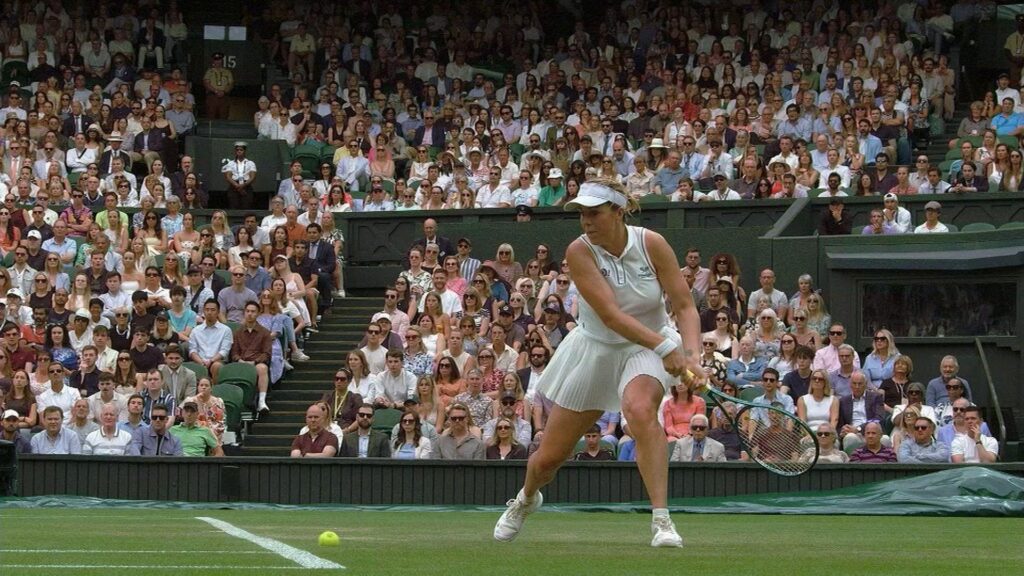Wimbledon Apologises After Electronic Line-Calling System Fails, Causing Controversy
Wimbledon organizers have issued a formal apology following a significant technical malfunction during a match on Centre Court, where the state-of-the-art electronic line-calling system was mistakenly deactivated. This failure led to three crucial line calls being missed in a single game, sparking frustration and accusations of a “stolen” game from one of the players involved.
The incident occurred during a first-round match where Russian player Anastasia Pavlyuchenkova highlighted that a backhand from her opponent, Sonay Kartal, was clearly long but went uncalled due to the system’s failure. The chair umpire, Nico Helwerth, unaware of the deactivation, halted play upon observing the situation. Initially, the All England Club attributed the issue to “operator error” leading to the system’s deactivation during the point in question. However, a subsequent investigation revealed that the technology was erroneously turned off on the server’s side of the court for the entirety of one game.
During the period the system was offline, three line calls that would normally have been automated were missed. While the umpire made his own calls for two of these, the technology’s absence was starkly evident in the disputed call that stopped play. The All England Club has since extended its apologies to both players involved, emphasizing that while they maintain full confidence in the accuracy of the ball-tracking technology, the incident was a result of human error. “We have fully reviewed our processes and made the appropriate changes,” a spokesperson stated, assuring that steps have been taken to prevent recurrence.
The controversy has ignited a broader discussion about the reliability of electronic line-calling, a system that has replaced traditional line judges at many major tournaments, including the US Open and Australian Open. Several players, including Britain’s Emma Raducanu and former champion Belinda Bencic, have voiced concerns about perceived inaccuracies in the system at this year’s Wimbledon. Bencic noted that the technology, while generally a fan of it, has been “not correct” at this tournament, and it has become a frequent topic of discussion among players.
Pavlyuchenkova expressed her deep frustration, stating to the umpire, “You took the game away from me… They stole it.” She questioned the umpire’s decision not to make a definitive call herself, especially since a TV replay confirmed the ball was indeed out. “I thought he would do that, but he didn’t. Instead, they just said replay,” she commented, adding that she didn’t know if the outcome was influenced by Kartal’s local status, suggesting the umpire might have been hesitant to make such a significant decision.
The current protocol allows the chair umpire to make a call if the electronic system fails. If the umpire is unable to determine the validity of a shot or if play was stopped, the point is replayed. However, Pavlyuchenkova argued for greater umpire intervention and the use of video review systems, similar to those in football, to ensure fairness. “I think the chair umpire should be able to take initiatives… otherwise I think we could have also had a match without a chair umpire,” she stated, advocating for umpires to be more decisive, even to the point of issuing fines or code violations when necessary.
Wimbledon officials, including Debbie Jevans, had previously expressed confidence in the technology’s accuracy, citing player demand as a reason for its implementation. While some players, like Iga Swiatek, admit to having doubts, they acknowledge the need to trust the system’s calls. The incident, however, has undoubtedly intensified the debate surrounding the role and reliability of technology in professional tennis.

